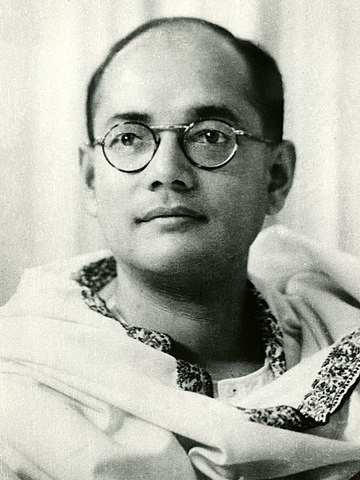News Highlights:
- Parakram Diwas 2023: Parakram Diwas is celebrated on January 23 to mark the birth anniversary of freedom fighter Subhas Chandra Bose, who is fondly known as ‘Netaji.
- To mark the occasion, 21 unnamed islands of Andaman and Nicobar will be named after Param Veer Chakra awardees.
- A model of the National Memorial dedicated to Netaji will be built on Netaji Subhas Chandra Bose Dweep.
Key Takeaway:
- Celebrating the Parakram Diwas is to develop a sense of patriotism in the hearts of Indian citizens, especially the younger generation.
- This will encourage them to act with courage whenever they face any challenges.

Netaji Subhas Chandra Bose:
- About:
- Subhas Chandra Bose was one of the most eminent freedom fighters in India.
- Subhash Chandra Bose made significant attempts to defy colonialism.
- He is one of those great freedom fighters whom the nation always remembers.
- Birth:
- Born in Cuttack, in the province of Bengal, to an affluent family.
- Parakram Diwas is celebrated on January 23 to commemorate his birth anniversary
- Education:
- He was educated in Calcutta, acquiring a degree in philosophy.
- Subhas Chandra Bose was Selected for the Indian Civil Services (ICS) but refused to take up service since he did not want to serve the British government.
- Role in Indian Independence:
- Bose joined the Indian National Congress (Formed on December 28, 1885) in 1921.
- He was President of the All India Youth Congress and the Bengal State Congress Secretary.
- He actively participated in the Salt Satyagraha of 1930 and vehemently opposed the suspension of the Civil Disobedience Movement and the signing of the Gandhi-Irwin Pact in 1931.
- In the 1930s, he was closely associated with left politics in Congress along with Jawaharlal Nehru and M.N. Roy.
- Bose won the presidential elections at Haripura in 1938.
- Again, in 1939, at Tripuri, he won the presidential elections against Gandhi’s candidate Pattabhi Sitarammayya.
- Due to ideological differences with Gandhi, Bose resigned and left congress.
- He founded a new party, ‘the Forward Bloc’. The purpose was to consolidate the political left and major support base in his home state Bengal.
- Indian National Army:
- Bose’s arrival in Japan revived the Indian National Army (Azad Hind Fauj), which had been formed earlier with Japanese help.
- Azad Hind, or the Provisional Government of Free India, was established as a government-in-exile with Bose as the head. Its headquarters was in Singapore. The INA was its military.
- Bose motivated the troops with his fiery speeches. His famous quote is, “Give me blood, and I shall give you freedom!”
- The INA supported the Japanese army in its invasion of northeast India and took control of the Andaman and Nicobar Islands.
- However, they were forced to retreat by the British forces following the Battles of Kohima and Imphal in 1944.
- Literary work:
- He started a newspaper called ‘Swaraj’.
- He coined the term ‘Jai Hind’.
- Bose authored the book ‘The Indian Struggle’ which covers the Indian independence movement from 1920 to 1942.
- Death:
- Bose died of third-degree burns, which he suffered in a plane crash in Taiwan on 18 August 1945.
- However, many in India refused to believe that he had died.
- Subhas Chandra Bose’s Quotes inspire generations to come:
- India is calling. Blood is calling to blood. Get up; we have no time to lose. Take up your arms! We shall carve our way through the enemy’s ranks, or if God wills, we shall die a martyr’s death. And in our last sleep, we shall kiss the road that will bring our Army to Delhi.
- Tum Mujhe Khoon Do, Main Tumhe Azadi Doonga (Give me blood, and I will give you freedom!).
- Soldiers who always remain faithful to their nation, who are always prepared to sacrifice their lives, are invincible.
- Life loses half its interest if there is no struggle – if there are no risks to be taken.
- One individual may die for an idea, but that idea will, after his death, incarnate itself in a thousand lives.
Pic Courtesy: Wikimedia Commons
Content Source: Hindustan Times



